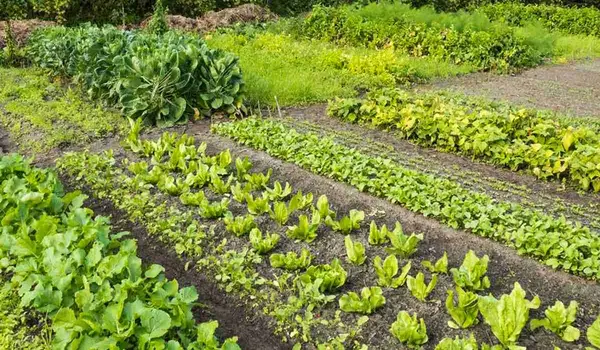Introduction BulkAgro Chem is dedicated to advancing agricultural practices with a focus on sustainable soil management. We offer innovative products and solutions that support effective crop rotation and soil fertility, helping farmers achieve long-term agricultural success. Benefits of Crop Rotation Improved Soil Structure: Rotating crops helps break up compacted soil and enhances its structure, leading to better aeration and water infiltration. Enhanced Nutrient Availability: Different crops have varying nutrient requirements and root structures, which helps in maintaining a balanced nutrient profile in the soil. Reduction in Soil Erosion: Alternating crops can reduce soil erosion by varying root structures and ground cover, stabilizing the soil. Pest and Disease Management: Rotating crops interrupts the lifecycle of pests and diseases, reducing their prevalence and the need for chemical treatments. Weed Control: Different crops can suppress weed growth and reduce the need for herbicides by competing with weeds and altering soil conditions. Increased Soil Organic Matter: Leguminous crops can fix atmospheric nitrogen into the soil, enhancing its fertility and organic matter content. Better Soil Moisture Retention: Crop rotation can improve soil moisture retention by varying root depth and structure. Reduced Dependence on Fertilizers: By balancing nutrient uptake and replenishing soil nutrients naturally, crop rotation reduces the need for synthetic fertilizers. Importance of Crop Rotation for Soil Fertility Nutrient Management: Different crops have distinct nutrient needs and contributions to the soil. For instance, legumes can fix nitrogen, which enriches the soil for subsequent crops. This helps maintain a balanced nutrient profile and reduces the need for synthetic fertilizers. Pest and Disease Reduction: Rotating crops breaks the lifecycle of pests and diseases that might otherwise build up in the soil. This reduces the likelihood of infestations and disease outbreaks, leading to healthier crops and less reliance on chemical controls. Soil Structure Improvement: Different root systems affect soil structure differently. Deep-rooted plants can help break up compacted layers, while shallow-rooted plants may improve surface soil structure. This variety helps enhance overall soil health and fertility. Weed Management: Crop rotation can help control weeds by varying the types of crops grown. This diversity can disrupt weed life cycles and reduce the prevalence of specific weed species, minimizing the need for herbicides. Organic Matter Enhancement: Including cover crops and green manures in the rotation adds organic matter to the soil, which improves soil structure, water retention, and fertility. This organic matter also supports beneficial soil microorganisms. Conclusion Crop rotation is a fundamental practice for maintaining soil fertility and supporting sustainable agriculture. By diversifying crops, farmers can improve soil structure, manage pests and diseases, control weeds, and enhance nutrient availability. BulkAgro Chem supports these practices with a range of products designed to optimize soil health and fertility. Embracing crop rotation not only benefits soil quality but also contributes to long-term agricultural productivity and environmental sustainability. By integrating crop rotation into their farming systems, farmers can achieve a more resilient and productive soil environment, ensuring ongoing success and sustainability in their agricultural endeavors.
Bulkagrochem
Submit your contact number & get exciting offer
Bulkagrochem.com
Bulk Purchase & Get Bulk Discount
Share your number to receive customized bulk pricing, availability updates, and exclusive offers directly via WhatsApp.

Recommended Products




